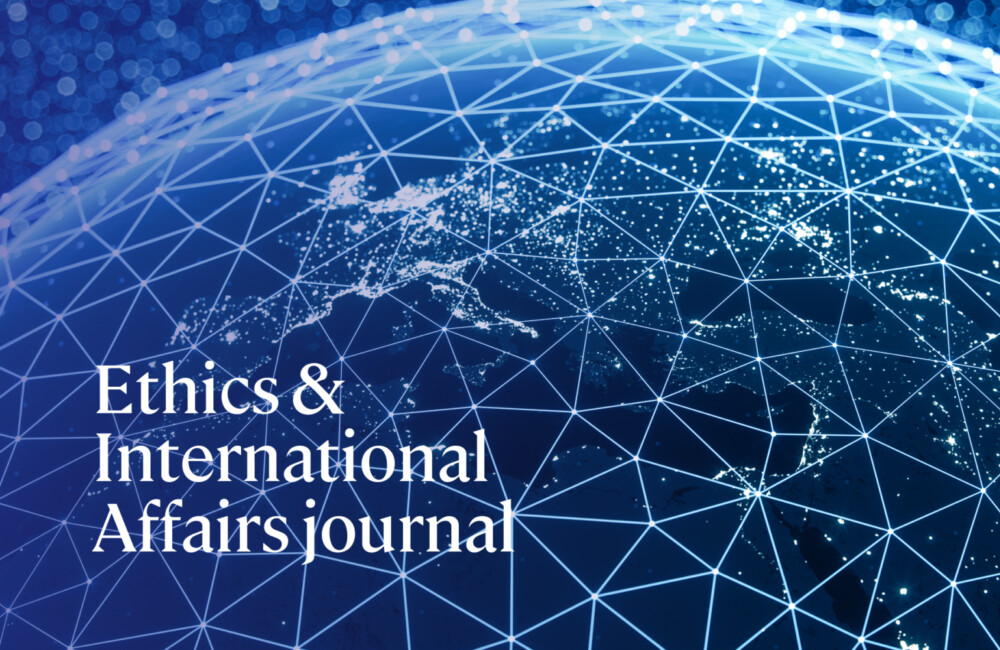In an era of popular academic forecasts predicting the end of history, the nation-state, and the Westphalian model of international relations, Robert Jackson's The Global Covenant: Human Conduct in a World of States offers a spirited reminder of the continuing empirical and normative significance of a society of juridically independent, territorially bounded states organized around the principles of sovereignty and nonintervention. To some, this book will seem like a reactionary defense of outdated concepts such as the national interest, the rule of nonintervention, and the international/domestic divide. That reading, however, would miss the virtue of The Global Covenant, which is its comprehensive illumination of some of the thorniest problems facing a state-centric world.
The main theoretical ambition of The Global Covenant is to revive, clarify, and develop the "English school" or "international society" approach to the study of international relations, forged most prominently by Martin Wight and Hedley Bull. Jackson's recovery of the tradition's classical humanist approach is a welcome antidote to positivist-dominated international-relations scholarship in North America. Indeed, the strength of Jackson's study lies in his use of military and diplomatic history, legal-institutional scholarship, and political theory to expose the empirical reality and normative logic of a societas of states. He is right to show that the language of sovereignty and nonintervention remains central to the normative vocabulary of statespeople, and hence, in any conversation on international ethics. Defining international ethics as the ethics of statecraft, Jackson provides provocative analyses and arguments on some of the most contested theoretical and practical issues in world politics today, including the meaning of security in an era of globalization, the justification of war, the dilemmas of humanitarian intervention, the existence of "failed states," the moral significance of international boundaries, and the place of democratic values in international society. His insistent conclusion is that anyone who wishes to explain, understand, and resolve these issues must deal first and foremost with the world of states and statespeople.
Jackson"s substantive aim is to vindicate the moral functions of the society of states that was born in the seventeenth century and has endured through dramatic changes such as the scientific and industrial revolutions and two world wars. Drawing from the conservatism of Michael Oakeshott and the value pluralism of Isaiah Berlin, Jackson defends a nonteleological and anti-monist conception of international society. There is no singular directing doctrine that everyone must follow, and there is no single commanding authority that everyone must obey, and this, according to Jackson, is the way it ought to be. The global covenant that has established a pluralist, anti-paternalistic international society constitutes a practical institutional adaptation to the facts of human diversity and human imperfection. At the same time, the pluralist architecture of international society ultimately serves the moral value of freedom. Like Michael Walzer, Jackson draws from the liberalism of John Stuart Mill to argue that the political independence of states is the condition for the exercise of individual agency. An international society so conceived, according to Jackson, is the most morally defensible political "arrangement to uphold human equality and human freedom around the world" (p. 43).
Jackson"s concern about paternalism in the new age of humanitarianism is not unfounded, especially when one remembers all the civilizing intentions that buttressed the theory and practice of colonialism. As a former student of African politics, Jackson is perhaps more appreciative than most of the moral achievement represented by the establishment of a global society of juridically equal and independent states. Such a society represents a refutation of the "standard of civilization" that, historically, was used as a test of admission into the European society of states and, in practice, legitimated exclusion of and discrimination against non-European peoples and civilizations. Perhaps preoccupied with the ghost of colonialism, Jackson rigidly defends the normative prohibition against intervention, and affirms the moral importance of sovereign consent as a criterion for legitimate international intervention.
Yet I am reminded of television images from spring 1994 of Rwandan Tutsis with their arms raised as if in surrender, appealing to a Western camera crew to help them escape certain slaughter at the hands of Hutu extremists. Would it have been paternalistic for other states or the UN to intervene to rescue them from becoming victims of genocide? If human freedom and equality form the ultimate moral bases for international society, the rules of state sovereignty and nonintervention are clearly imperfect instruments for achieving these moral aims; too often, they serve as perverse instruments for undermining them. No human institution or society can be morally perfect, but one that fails to prevent or halt genocide seems not merely imperfect, but grossly deficient from a moral point of view. Jackson acknowledges that a laissez-faire liberal international society leaves ample room for illiberal and even tyrannical domestic regimes, but he relies, like Walzer, on an inaccurate sociological conception of insulated political communities and an idealistic view of ordinary men and women winning their freedom by themselves. The hard question of how states can be held accountable for abuses of sovereign power is one that is disappointingly absent in Jackson"s discussion, despite recent developments in international society and law toward a conception of retributive justice for victims of state violence. I suspect that the contribution of a society of states to the advancement of human equality and freedom will depend on its ability to institutionalize effective mechanisms of moral accounting for abuses of sovereign power.
One final issue I must take with Jackson"s study involves his assertion that it "is not the role of academics to promote values" (p. 83). Positing a distinction between the academic whose job is to provide a coherent interpretation of the political practitioner"s world, and the politician or activist whose role is to promote certain values, Jackson argues that an academic orientation must aspire to disinterested and detached study. Yet just as George Orwell once observed that the idea that literature has nothing to do with politics is itself a political statement, I would suggest that the view that academic research can be so dissociated from moral and political concerns and values is an illusion that no distinguished scholar ought to foster. Even constructing a definition of the subject of international ethics cannot be a wholly impartial intellectual task, as it involves normative assessments of the agents and structures of international relations that are partly based on the investigator"s hierarchy of human values.
The Global Covenant may be viewed as a vindication of a societas of states; to this reader, however, it succeeds far better in revealing the moral quandaries and inadequacies of that society than its moral strengths. Still, The Global Covenant will likely gain prominence as an unabashed contemporary voice for the "international society" tradition in its continuing dialogue with realist, cosmopolitan, and other ethical traditions of international relations.


